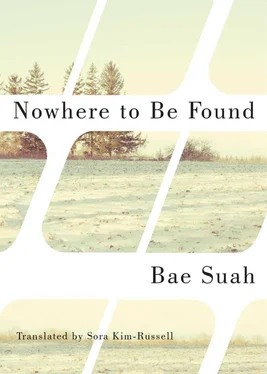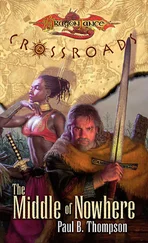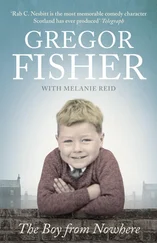“You’re calling your father corrupt? You throw around such dangerous words as if they’re nothing! There was no proof, no witnesses. They used him.”
“That’s what they call mass hypnosis, Mother. Do you really think that analyzing everything from an antiestablishment perspective will give you the answer you want?”
“Then I suppose you think it’s right that we have to live this way? Maybe you can accept it, but I can’t. Everyone at city hall knows that your father was a scapegoat. They promised to look after us. They said they would take care of our living expenses. I haven’t heard from anyone.”
“Everyone, including you and me, is living the life they had coming to them. Don’t you get it? It’s not about corruption or crime or conscience.”
“Of course you would say that. You were born with a knife in your heart. That’s why I’m no longer surprised by anything that comes out of your mouth.”
A demonstration had been taking place in front of the prison since dawn. Some political prisoners who’d violated the National Security Law were in the same prison as my father. I heard they’d started a hunger strike in response to the prison guards’ unjustified use of excessive force. The prisoners’ family members were demonstrating to try to pressure the prison into moving one of the men to a hospital, as he had swallowed a dozen nails while calling for retribution. I wrapped a scarf around my throat and walked along the wall of the prison. The final sun of that winter was nowhere in sight. The crowd of demonstrators was growing larger by the minute, and the prison doors remained closed. It would be hard to get inside for a visit today. I left when the television crews arrived. Where had the political prisoner found twelve nails? If you swallowed twelve nails, would they slowly kill you? A group of men who looked like university students got off a bus; they wore backpacks that clanked with Molotov cocktails. Two of them approached me.
“There’s a rally tonight. We must all stand together.”
“Come with us. The dawn of the people has not yet risen.”
I passed by those hot-blooded partisans and bought a cup of instant coffee to sip as I walked to the bus stop. I waited awhile and then bought another cup. The shadows of the brave receded. I took out the card I was planning to send to my father and, while standing there on the windy street, jotted something down on the back of it.
Dad, swallow nails.
That was everything that happened in 1988.
That year was my beginning and my end. It was one year of my life that was neither particularly unhappy nor particularly happy. It wasn’t so different from 1978, and it wasn’t any more or less memorable in comparison to 1998. The things that happened in 1988 had also happened in 1978 and would happen again in 1998. The people I met in 1988 were no different from those who bumped shoulders with me in the subway in 1978 and whose apathetic eyes met mine outside of a gas station in the middle of the night in 1998. They were family, and they were the unfamiliar middle class, and they were malnourished soldiers. They were each other’s toilets and strangers and cliffs and crows and prisons. They were never anything more than who they were. Third person random.
I went through a number of different jobs after 1988. The university offered to extend my contract for another year, but instead I worked at a law office that my father’s friend had connected me with, because the pay was higher. I quit my part-time job at the restaurant. After the law office, I worked in the public relations office of a department store and at the in-house magazine of an automobile company. Now and then I got to take photographs of buildings, interview people, and write articles. The work wasn’t so different from what I did in 1988, except that typewriters changed to word processors, which soon changed to personal computers. Late at night I would lean back in my office chair and listen to K. D. Lang’s “Barefoot” thirteen times in a row. Exactly thirteen times. At ten o’clock, the lights shut off throughout the building and the flashing lights of cars all pointed in the same direction, like stars floating below the surface of a river. I would listen to the song on repeat with my legs propped up on the desk and my back pressed against the chair, and when it ended, I would spring up out of my chair like a corpse come back to life and pace back and forth across the darkened office.
And I talked to people here and there. At the bus stop, in the subway, at the office, or the park, or the police station, or the shop that sold ramen boiled in a large iron pot. Sometimes it was for work, and sometimes it was a wrong number, and sometimes it was a friend whose name I called out, and sometimes it was someone I wanted to get to know better. There were people I saw nearly every day, and there were business relationships, and there were people I wanted to have a drink with, and people who wanted to borrow money from me, and people I wanted a shot at seducing once we got to know each other better. And then sometimes there were strangers I’d never met before.
“I was in the Fifth Division in 1988.”
That’s how he began it.
“I see.”
“I was doing my compulsory service.”
I said nothing.
“I think I saw you.”
I laughed. I laughed without making any sound so the person on the other end of the phone couldn’t see me smiling. He probably took it as mere silence.
“It was a gray, snowy day,” he said, not paying my silence any mind.
“You have no idea who I am, and yet you’re telling me all of this.”
“Indeed,” he conceded. “We’ve never met, at least not that we were aware of.”
“I don’t know you.”
“I was about to tell you who I am.”
“I’ll give you one minute. Starting now.”
I didn’t bother to look at the clock.
“In 1988 I served as an officer-in-training in the Fifth Division in Yeoncheon. Everyone thinks that rank was invented just to give the presidents’ sons an easier time during their conscription, but luckily even some of us sons of poor families could benefit from it as long as we were able to pass the officer candidate test. Wow, that was already ten years ago. I teach sociology courses at a university, but I’m not a full professor. I’m what you might call an after-hours club performer — a part-time outside lecturer who teaches night classes. By day I’m an ordinary company employee. The official title of my course is criminal sociology; I lecture for three hours straight. The topic changes every week: murder, robbery, burglary, rape, domestic violence.”
“What kinds of people commit murder?”
“Murderers, I suppose.”
“Your minute is up.”
“Do you suppose we will ever be rid of all antipersonnel weapons?”
“Huh?”
“How are such weapons any different from murder?”
“They’re not.”
“I’m planning a demonstration. Everyone will form a human chain.”
“Doing that won’t change a single thing.”
“Will you join us anyway?”
“I might have plans.”
“The people who come to these things are willing to cancel any unimportant plans in order to be there.”
“You’re a rare sort of idealist.”
“I might be the complete opposite.”
“I’ve changed a lot. You probably won’t recognize me.”
Oddly enough, time repeated itself. It outlived memory. Back then Cheolsu was nowhere to be found, and it would be no different in the future. Meaningless sensations lingered on my skin as clearly as teeth marks that refused to fade. Time pushes away that which is intended, rejects that which is rejected, forgets that which is sung about, and is filled with that which it turns its eyes from, such as the white hairs of a loved one.
Читать дальше












